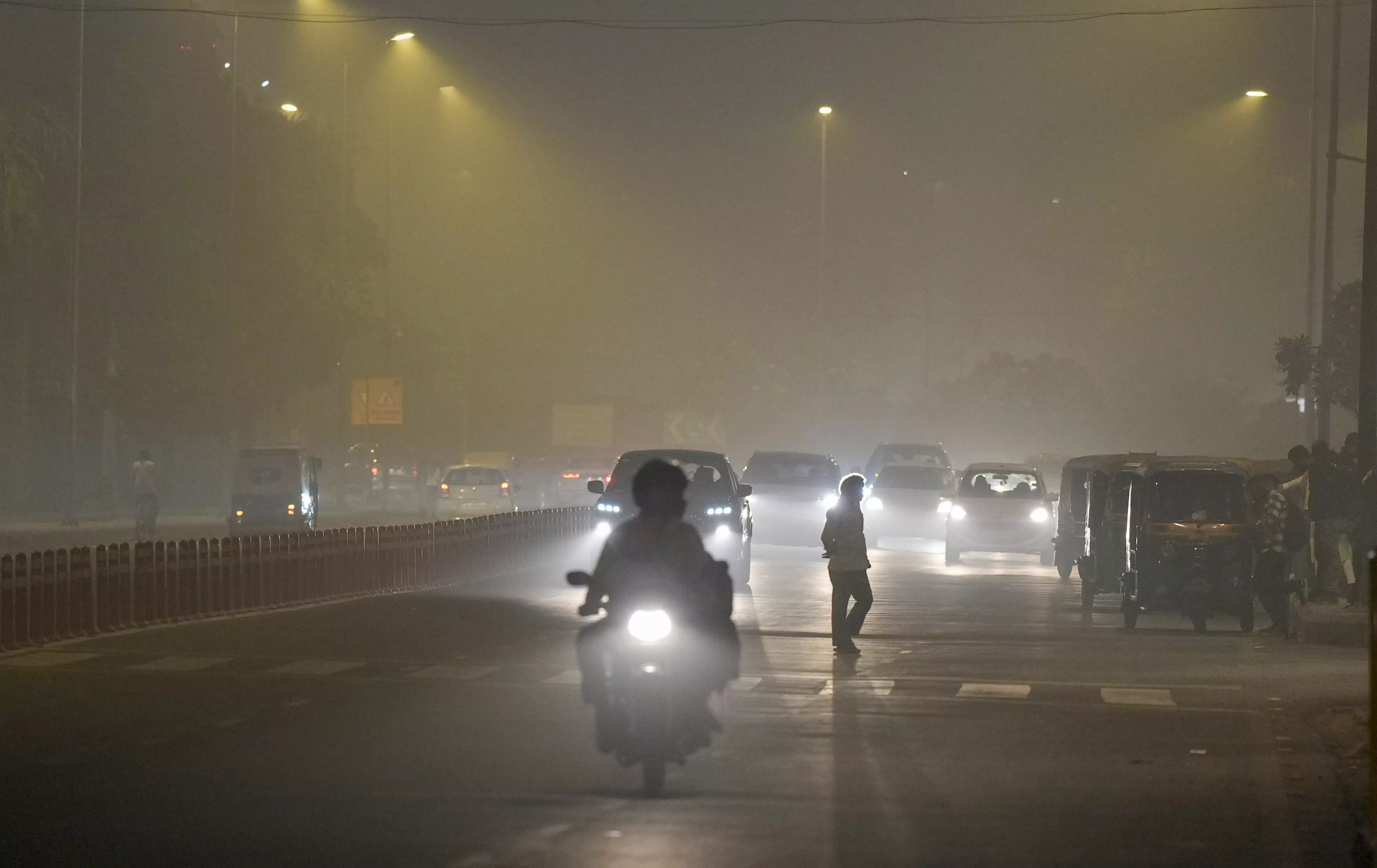
Delhi: GRAP-4 to be implemented from today as air quality turns 'Severe +'
The Air Quality Index breached the 'severe plus' mark for the second time since last Wednesday; moreover dense to very dense fog is likely on Monday (November 18) morning

Delhi's air quality continues to worsen triggering concern, as it breaches the 'severe plus' mark for the 2nd time in the last five days, making it the second-most polluted city in the country.
On Sunday (November 17) evening, the air quality dipped further in Delhi, breaching the 'severe plus' after the 24-hour Air Quality Index (AQI) went up to 457. At 4 pm, the AQI had stood at 441, in the "severe" category. On Saturday, the AQI was 417.
CAQM orders GRAP-IV implementation
In view of the worsening pollution levels, the Commission for Air Quality Management (CAQM) has directed the implementation of the fourth stage of Graded Response Action Plan (GRAP) in Delhi-NCR and adjoining areas starting 8 am on Monday (November 18).
According to a press release issued by CAQM on Sunday, the sub-committee for invoking actions under GRAP after reviewing the air quality scenario in the region as well as the forecasts for meteorological conditions and AQI, decided that all actions as envisaged under Stage IV of the GRAP Severe Air Plus will be implemented in right earnest by all agencies concerned.
The AQI breached the 'severe plus' mark for the second time since last Wednesday, after the air quality in New Delhi and surrounding areas plummeted to the 'severe' category for the first time this season on that day.
On Sunday, all stations in Delhi recorded an AQI of over 400 with Bawana (490), Ashok Vihar (487) and Wazirpur (483) appearing as the most polluted at the 7 pm mark.
Also, according to IMD data, moderate to dense fog is likely in the national capital on Sunday night, while dense to very dense fog is likely on Monday morning.
Also read: Delhi: Over 2,200 overage vehicles impounded to combat air pollution
Health risks
According to the Central Pollution Control Board (CPCB), a "severe" AQI poses risks to healthy individuals and severely impacts those with pre-existing health conditions.
An AQI between 0 and 50 is considered "good", 51 and 100 "satisfactory", 101 and 200 "moderate", 201 and 300 "poor", 301 and 400 "very poor", 401 and 450 "severe" and above 450 "severe plus".
Bahadurgarh in Haryana tops list
Four cities in the country recorded the AQI in the "severe" category. Bahadurgarh in Haryana topped the list with an AQI of 445, followed by Delhi (441), Bhiwani in Haryana (415) and Bikaner in Rajasthan (404), according to the CPCB's data.
Of the 40 monitoring stations in the capital, data from 34 provided by the CPCB showed that 32 stations recorded the air quality in the "severe" category, with AQI levels of above 400.
Also read: Delhi: Air quality pegged at 'severe', minimum temperature 15.9 deg C
GRAP restrictions come into force
The third stage of the Graded Response Action Plan (GRAP) restrictions have come into force in Delhi-NCR from Friday. This will involve a stringent ban on construction and demolition activities, while mining-related operations have been suspended. Non-electric, non-CNG, and non-BS-VI diesel interstate buses will be restricted.
It is being considered to shift students up to Class 5 in Delhi-NCR to online classes and daily water sprinkling on major roads has been mandated. From Friday onwards, the Delhi Transport Department has started imposing strict penalties on vehicles violating pollution norms, with fines set at ₹20,000 for offenders.
Moreover, the government has also asked Delhi residents to carpool and to opt for public transport as much as possible. The Delhi Metro too will run an additional 20 trips (in addition to the 40 already in place since GRAP-II was implemented) from today after the implementation of Stage III of GRAP.
The GRAP for Delhi-NCR is divided into four stages of air quality, Stage 1 for "poor" air quality (AQI ranging from 201 to 300), Stage 2 for "very poor" air quality (AQI from 301 to 400), Stage 3 for "severe" air quality (AQI from 401 to 450) and Stage 4 for "severe plus" air quality (AQI above 450).
According to the Centre's Decision Support System for Air Quality Management, vehicular emissions contributed approximately 15.8 per cent to Delhi's pollution on Sunday.
The system also reported that stubble burning was the main contributor to the capital's air pollution on Saturday, accounting for 25 per cent of the total pollution.

